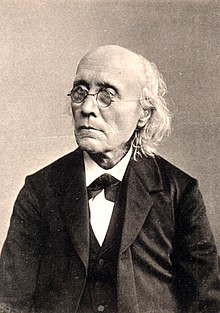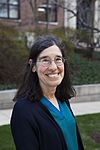Portal:Psychology
The Psychology Portal
| Part of a series on |
| Psychology |
|---|
Psychology is the scientific study of mind and behavior. Its subject matter includes the behavior of humans and nonhumans, both conscious and unconscious phenomena, and mental processes such as thoughts, feelings, and motives. Psychology is an academic discipline of immense scope, crossing the boundaries between the natural and social sciences. Biological psychologists seek an understanding of the emergent properties of brains, linking the discipline to neuroscience. As social scientists, psychologists aim to understand the behavior of individuals and groups.
A professional practitioner or researcher involved in the discipline is called a psychologist. Some psychologists can also be classified as behavioral or cognitive scientists. Some psychologists attempt to understand the role of mental functions in individual and social behavior. Others explore the physiological and neurobiological processes that underlie cognitive functions and behaviors.
Psychologists are involved in research on perception, cognition, attention, emotion, intelligence, subjective experiences, motivation, brain functioning, and personality. Psychologists' interests extend to interpersonal relationships, psychological resilience, family resilience, and other areas within social psychology. They also consider the unconscious mind. Research psychologists employ empirical methods to infer causal and correlational relationships between psychosocial variables. Some, but not all, clinical and counseling psychologists rely on symbolic interpretation. (Full article...)
Selected article -
The hard–easy effect is a cognitive bias that manifests itself as a tendency to overestimate the probability of one's success at a task perceived as hard, and to underestimate the likelihood of one's success at a task perceived as easy. The hard-easy effect takes place, for example, when individuals exhibit a degree of underconfidence in answering relatively easy questions and a degree of overconfidence in answering relatively difficult questions. "Hard tasks tend to produce overconfidence but worse-than-average perceptions," reported Katherine A. Burson, Richard P. Larrick, and Jack B. Soll in a 2005 study, "whereas easy tasks tend to produce underconfidence and better-than-average effects."
The hard-easy effect falls under the umbrella of "social comparison theory", which was originally formulated by Leon Festinger in 1954. Festinger argued that individuals are driven to evaluate their own opinions and abilities accurately, and social comparison theory explains how individuals carry out those evaluations by comparing themselves to others. (Full article...)
Selected image -

Quotes -
- "Everywhere I go, I find a poet has been there before me." — Sigmund Freud
WikiProjects
Selected biography -

Gustav Theodor Fechner (/ˈfɛxnər/; German: [ˈfɛçnɐ]; 19 April 1801 – 18 November 1887) was a German physicist, philosopher, and experimental psychologist. A pioneer in experimental psychology and founder of psychophysics (techniques for measuring the mind), he inspired many 20th-century scientists and philosophers. He is also credited with demonstrating the non-linear relationship between psychological sensation and the physical intensity of a stimulus via the formula: , which became known as the Weber–Fechner law. (Full article...)
Did you know (auto-generated) -

- ... that the psychological inner space genre was a rebellion against the traditional focus of science fiction on literal outer space?
- ... that Cara De Silva described a cookbook compiled by a woman in Terezin concentration camp as a record of "psychological resistance”?
- ... that although Andrzej Żuławski's film Possession is referred to as a psychological drama and horror, its genre is still a matter of controversy?
- ... that food psychology research has found that the COVID-19 pandemic led to both reduced and increased consumption of junk food among different geographical populations and educational backgrounds?
- ... that Ahmad Nasuhi ordered a subordinate to attack the Indonesian Communist Party's offices with grenades as "psychological warfare against the central government"?
- ... that Fortnite's Tilted Towers was described by critics as the equivalent of "psychological torture" and being "dropped into a meat grinder"?
Subcategories
Related portals
More did you know -

- ...that cognitive psychologist Elizabeth Spelke (pictured) showed that human beings are born with many innate skills?
- ...that former Congolese general Laurent Nkunda was a psychology student before helping Laurent-Désiré Kabila to overthrow Mobutu Sese Seko?
- ...that Jacques Lacan's theory of a mirror stage, where an infant first recognizes its self in a mirror, was inspired by the work of psychologist Henri Wallon?
- ...that C. C. Too, a leading exponent of psychological warfare in Malaysia, crafted a campaign to turn public opinion against the communists during the Malayan Emergency?
- ...that approximately 10,000 young Germans known as the Ritchie Boys served in the United States Army in World War II helping conduct psychological warfare against Nazi Germany?
Psychology topics
Recognized content
Associated Wikimedia
The following Wikimedia Foundation sister projects provide more on this subject:
-
Commons
Free media repository -
Wikibooks
Free textbooks and manuals -
Wikidata
Free knowledge base -
Wikinews
Free-content news -
Wikiquote
Collection of quotations -
Wikisource
Free-content library -
Wikiversity
Free learning tools -
Wiktionary
Dictionary and thesaurus























